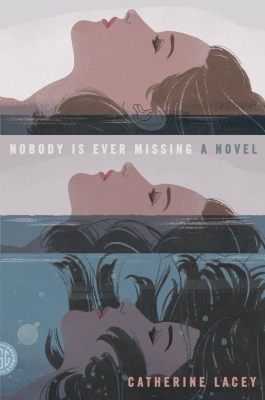Although I finished it months ago, I still haven’t really let go of my experience of reading Catherine Lacey’s singular debut, Nobody is Ever Missing. It’s a novel so strong of voice and point of view that I often find myself thinking about Elyria — whom the book follows from New York to New Zealand and eventually into an abyss of emotion — as if she were an old friend I’d mysteriously fallen out of touch with. Curious to know more about the writer behind the book’s captivating narrator, I chatted with Lacey about her writing process, her experience growing up in Mississippi, and what she’s been reading.
How long did it take you to write this novel?
It took my whole life to write this one novel. The words are one thing but the other stuff is untraceable. How long did it take you to learn the English you know? How long did it take for you to become yourself? I don’t mean to be ridiculous or obtuse. I’ve just thought about this question now under different circumstances over the last couple years and I feel like I have a less and less certain answer every time it comes up.
What were the highs and lows of the writing process?
I think it’s important to remain levelheaded when working on something as ridiculous as a novel or a play or a film or anything. Of course some days you are totally lost. Of course you think about quitting. No one talks about how easy writing a book is. The highs and lows are as normal as putting words on a page.
What inspired this novel?
New Zealand was the jumping off point. I really got wrapped up in the landscape and color there especially in the more boring parts of the country. There was this certain kind of clean, bleak, warm light. And the people are fascinating to me. And the way people moved through space. It was all the million tiny things about that place.
What about that setting felt right for Elyria’s journey?
Elyria formed as a counterpoint to that landscape—isolated and clean and slow. She’s a claustrophobic, chaotic, fast headspace. I’m interested in that sort of contrast.
Do you believe in the idea of “Saturn Return”? Has it had any influence on your own life writing this novel, or the transformation Elyria undergoes in the book?
Yeah, maybe? God, I don’t know. We all accept that the moon has an effect on the tides and that there are more dimensions than we could ever comprehend — who knows what sort of inter-dimensional inter-planetary what-not is going on? I don’t fully believe any of it, but I remain curious and in awe. It does seem like people in their late 20s freak out in a certain way. But there’s probably a lot of reasons why that is.
Your recent piece on BuzzFeed alludes to an interview in which someone asked you if you’ve been diagnosed for depression — has that happened a lot since the book came out?
That first experience with a reporter set a weird tone for me. Hardly any one asks that sort of question anymore. Actually, no one. No one has asked that. Maybe subsequent interviewers have that BuzzFeed essay to look at and know what not to ask, but I have more faith in people to be thoughtful. I think it’s just a weird question to ask a fiction writer, to make that sort of assumption, that a writer must have the same kind of problems as their narrator. It ended up bringing up some interesting questions for me, but, no, it hasn’t been an ongoing issue.
How did you land the book deal with FSG? What was the most challenging part of the publishing process?
I am lucky enough to work with an agent who understood what I was trying to do and she sent it to editors who also understood. The most challenging part of the publishing process is continuing to work on new stuff when something is pending on the business side of things.
What did you do to celebrate your book deal?
I was alone and near the ocean. I didn’t feel much of anything. I didn’t buy anything. I kept paying my bills as normal. When I got back to the city I think I said, “Wow” to my boyfriend about a hundred times. If we did anything special I can’t remember it. The special thing was, I guess, I published a book 18 months later. That was enough.
Do you feel like your life has changed since the release of this book?
In the months before the book came out I used to say I was a woman inside a cake. Everyone was “so excited” and no one knew what would happen. Now I am a woman who just jumped out of a cake and needs a shower. What I mean is it’s hard to get back to work when you feel all this outside perception and scrutiny. It’s starting to wear off and the work is happening more easily again. I’m starting to see now that a little burden has been lifted, too. I cannot write my first book again, so now I can move on, somehow.
Where did you grow up? What made you want to become a writer?
I grew up in Mississippi. I spent all my time as a kid at the church and the community theater. My family is a very church-going one, but we didn’t always talk about what that meant, so I became young zealot for a while because, essentially, the Bible is a very moving document if it hits you at just the right angle. So, the short answer is that I became a writer because The Bible is crazy and community theater people are amazing.
What are some of your favorite books you’ve read this year and why?
Alejandro Zambra and Elena Ferrante were my favorite discoveries this year. Zambra feels like a full person on the page, like someone quiet and inscrutable who makes you feel like you’re both completely at home and somewhere exotic at the same time. After reading one book, I felt certain I would read all his books. I almost have. Ferrante just burns and burns. I read Days of Abandonment this summer and felt so alive while I was reading it, so fully wrapped up in the voice.
What kind of audience do you hope your novel reaches?
Anyone who has lost something and would like to think for a few minutes to how baffling it is to be alive.![]()

